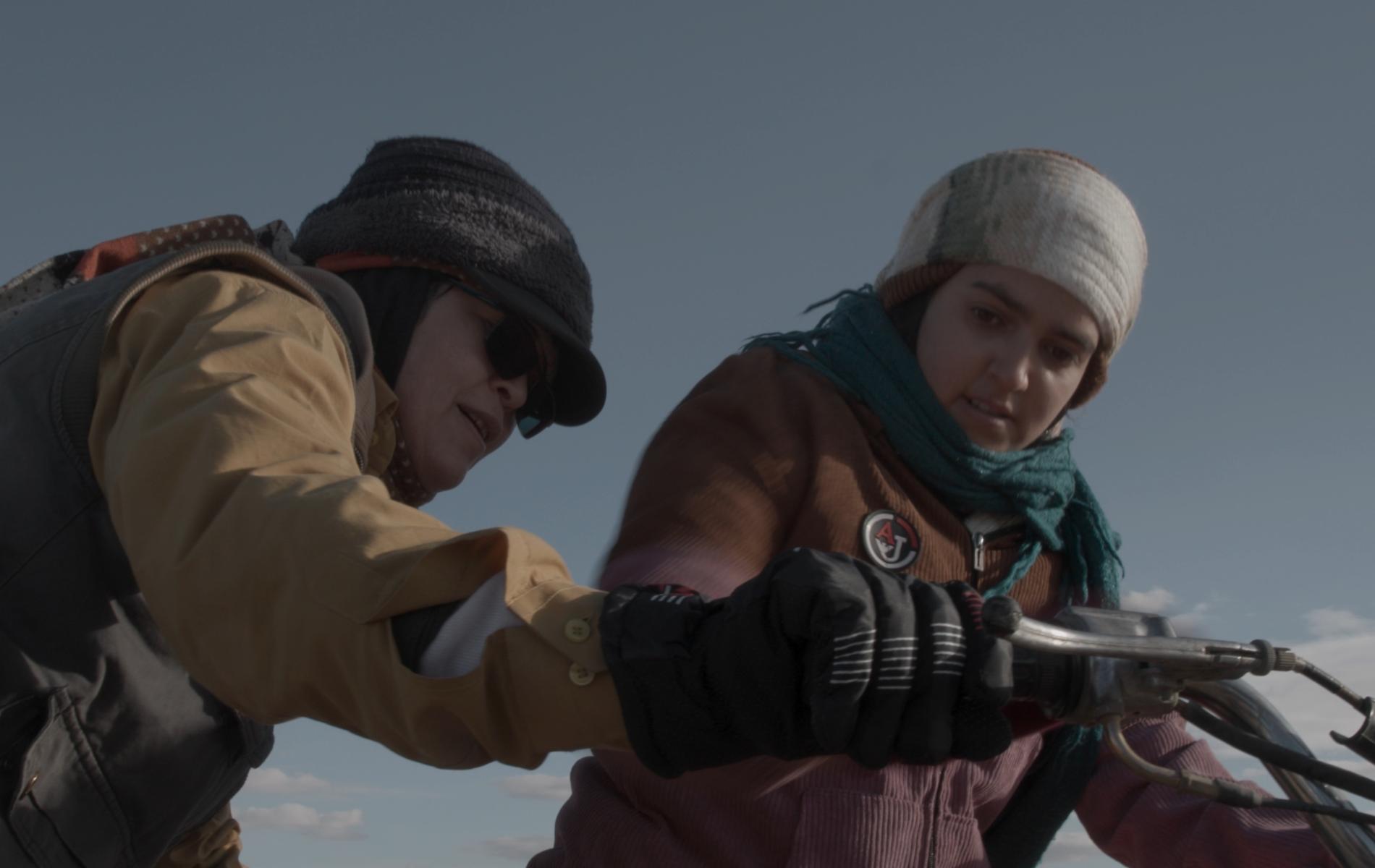Cutting Through Rocks
Cutting Through Rocks
VERDICT: An inspirational close-up portrait of a proudly rebellious woman fighting for gender equality in a deeply traditional region of Iran, making powerful enemies along the way.
The personal is deeply political for Sara Shahverdi, the proudly unconventional and highly impressive feminist campaigner at the heart of Cutting Through Rocks, an award-winning documentary by first-time feature directors Sara Khaki and Mohammadreza Eyni.
The first ever woman councillor to be elected in her socially conservative rural corner of northern Iran, a region dominated by Turkish Azeri speakers and deeply ingrained patriarchal values, the fortysomething Shahverdi is a lifelong rebel against gender norms. A proudly single divorcee, she rides a motorcycle, shuns overly feminine clothes, and fights against sexist tradition on a daily basis. The slow-burn pace and worthy subject matter of Cutting Through Rocks may sound dauntingly dry but Khaki and Eyni find warmth, humour and universal resonance in this very local story, which has its German premiere in Dok Leipzig this week after winning prizes at Sundance, Visions du Reel, Hot Docs and other festivals.
Khaki and Eyni both have Iranian heritage, the latter growing up in the region depicted in Cutting Through Rocks. To prepare for the project, they visited Shahverdi over several years, getting to know her family and her community intimately. Given the sensitive subject matter in an already heavily censorious film climate, they inevitably faced challenges from the authorities. Their offices were raided, their hard drives seized, and filming shut down for months. At one point they were banned from leaving Iran for a whole year. And yet, much like their doggedly determined heroine, they persisted.
Even before she is elected, we see Shahverdi staging a family mutiny among her six sisters, tearing up a dubious contact they were pressured into signing by their husbands in a shameless bid to steal their shared inheritance. When she runs for office, she tells voters, her main motive is so “our girls will have a better future”. The women and younger men of the village get behind her, but the older men routinely denigrate her efforts, claiming nobody will accept a woman in charge. Even so, she wins a place on the council, and begins to push for real change in a sclerotic system.
After her election victory, Shahverdi visits an all-girls school and makes the teenage students pledge to finish their studies and pursue independent careers before marrying. In an ingenious move, she arranges to have domestic gas delivered to the village, but makes it contingent on men sharing their property with their wives, smuggling social progress through by stealth and guile. “Now I’m afraid that my wife will build a wall in the middle of my house,” one man jokes after grudgingly signing over half his home.
In the film’s most touching subplot, Shahverdi intervenes to become guardian to a teenage schoolgirl, Fereshteh, who was forced to marry at 12 by her family, and is now navigating a painful divorce and potentially another arranged marriage. After inviting Fereshteh into her home, Shahverdi guides her through the grim divorce process, including a judge pressuring the girl to resign herself to her “destiny” by staying with a man twice her age. The older woman also takes another schoolgirl under her wing, the smart and spirited Zahra, teaching her to ride a motorcycle. These quasi-maternal mentor relationships are full of tenderness, though they inevitably create tension with the male gatekeepers of patriarchal power, who do their best to sabotage Shahverdi’s growing reputation as a subversive role model for young women.
Khaki and Eyni mostly shoot Cutting Through Rocks in a classically sober cine-verite style, sporadically punctuated with grand ariel landscape shots and recurring carpet-weaving motifs that bring a welcome splash of visual poetry. A solemn score is used very sparingly, mostly when the narrative takes a darker turn. This austere aesthetic shows impressive poise and tonal control, but can feel flat and conventional. More social, cultural and regional context might also have helped illuminate this story’s deeper political undercurrents.
No spoilers here but Shahverdi’s world-changing ambitions are eventually sidetracked by bitter betrayals, whispering campaigns and trumped-up legal charges, which only serve to underscore how traditional gender roles are socially constructed fictions, especially in deeply sexist societies. And yet the film-makers are careful not to deliver a simplistic, sensational crash-and-burn story. Despite its sombre final act, Cutting Through Rocks ends on a cautiously optimistic note, quietly celebrating heroic stoics like Shahverdi can make small but steady gains in the never-ending battle for equality.
Directors, producers,editors: Sara Khaki, Mohammadreza Eyni
Cinematography: Mohammadreza Eyni
Music, sound: Karim Sebastian Elias
Production companies: Gandom Films (Iran), Inselfilm (Germany)
World sales: Autolook
Venue: Dok Leipzig (Audience Award)
In Farsi, Azeri
95 minutes

